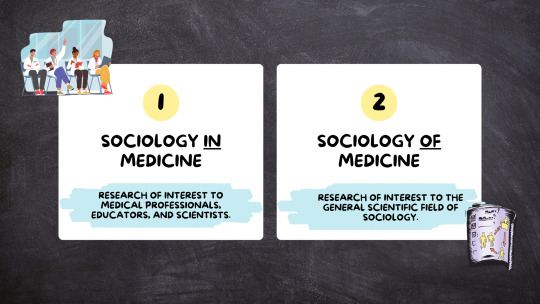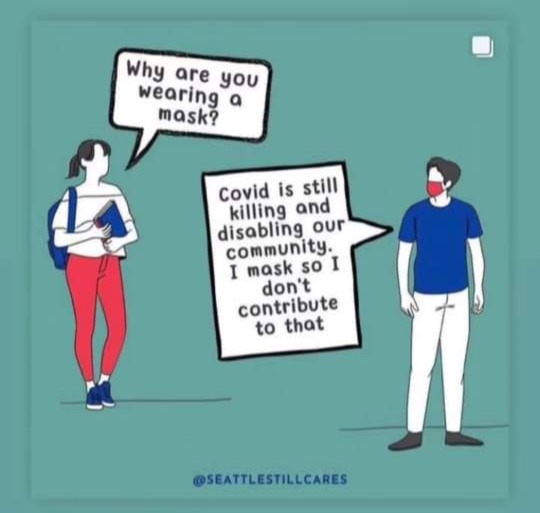Text

Im just Ken but even I know to mask to protect myself and my community from airborne illnesses, especially during the ongoing COVID pandemic.
20 notes
·
View notes
Text
mental illness hasn’t been destigmatised but commercialised
88K notes
·
View notes
Text
A little marriage humor for your Wednesday ^^^
Video description: 1-cream and tan mini labradoodle laying in a blue dog bed appearing to mope, captioned "When your husband is packing for a business trip"; 2-camera zooms in on moping mini cream and tan labradoodle, captioned "I guess I will survive if I must"; 3-shrek smirk meme, captioned *as soon as he leaves* to the intro of "moves like jagger" by Maroon 5; 4-bernedoodle puppy laying in grass drops an oversized tennis ball labeled "girl dinner" out of her mouth and licks her lips.
#parody#dogs#funny#humor#marriage humor#girl dinner#bernedoodle#labradoodle#mini labradoodle#marriage#wife#husband#couples#relationship goals#wenesday#dogblr#dogs of tumblr#comedy#married life#puppy
0 notes
Text
Guilty as charged
sending a WIP to my supervisors and getting "???" as comments to some parts... wish me luck as i'm trying to fix it
8 notes
·
View notes
Text
We've reached a new layer of not respecting mobility aid users/not seeing us as people.
Today in my class I was using my wheelchair and going towards someone to ask a question. They jumped up and grabbed someone else's cane from "in my way" and began to move it. I said no it's ok, and they said something like don't worry I'll put it back. I said no again and they returned it to where it was. I asked my question and went back to my spot. The person who's cane it was was sitting right there. They could have moved it if they thought it was in my way or if I asked them to.
A minute later I heard the cane fall over. It hadn't fallen before that but of course the abled person who moved it didn't know how to balance it properly.
Don't touch people's aids. Both myself and the other disabled person were able to handle the situation if necessary, but it didn't need to be handled because there wasn't a problem.
1K notes
·
View notes
Text
Compliance, per the two main approaches to medical sociology

Sociology in medicine is research that’s of interest to medical professionals, medical educators, medical scientists— things that are important to medicine as an institution.
Sociology of medicine tends to be research of interest to the general scientific field of sociology, not only sociologists who study matters of medicine, health, illness, healthcare, and disability. Importantly, it is not that medicine is simply disinterested in sociology of medicine, the institution of medicine sometimes has a vested interest in silencing or arguing against sociology of medicine. Sociology of medicine may not be useful to medical professionals, but if, for example, sociology of medicine is critiquing medical practice, as is often the case, it might move beyond useless to being perceived as offensive.
To further explore the difference between sociology in versus of medicine, let’s take the issue of compliance.

From the medical perspective, patient compliance is vital for successful medical practice and treatment. if your patient is not listening to you–for example, if they’re not taking their medication, and that medication is supposed to get them better, than you are going to have a much more difficult time treating that patient, and thus, a much harder time doing your job, than if the patient “complied” with your treatment plan. Same thing if your patient won’t have surgery. Well, if operating is the way that you do your job and the patient refuses, you cannot do your job as well. So, sociology in medicine would examine compliance with this medical perspective in mind. Sociology in medicine might investigate the barriers to patient compliance, and they might ask about these barriers in terms of patient behavior, asking something like "why are these patients non-compliant?" with the goal of identifying things that can be addressed to help patients better comply, so that medical professionals can have better chances of success when trying to do their jobs.
Now, moving to sociology of medicine—the greater field of sociology is interested in issues of power and inequality. When examining compliance in terms of power and inequality, we might look at something like physician control over patients, which would contribute to areas of sociology beyond medical sociology, such as the larger sociological literature on deviance and social control.
From this perspective, physicians offer something that patients cannot obtain on their own—prescription medications, surgery, imaging…these are all things that are considered both illegal and dangerous when obtained from non-credentialed entities. This means patients must be compliant to avoid severe consequences, like physical injury, disability, or even death. Healthcare providers hold power to help people feel better when they have few, if any, safe alternatives.
Instead of looking at compliance as inherently positive or necessary, we can critique the concept, and most importantly, the continued endorsement of compliance as “positive” and “necessary” by credentialed actors in medicine. So, sociology of medicine, similarly to sociology in medicine, may examine barriers to compliance, but because it does not assume compliance is necessary or helpful to the patient, it leaves room to explore the patient experience. Sociology of medicine can explore things like mistrust of medical professionals, experiences with bias and discrimination in the clinical encounter, and the patient’s understanding of a potential treatment as helpful versus their belief that the treatment is useless (independent of the science on said treatment’s effectiveness).
So, while sociology in medicine and sociology of medicine might both be interested in the question of “why do patients become noncompliant,” sociology in medicine might approach that question with the intent of identifying something that will lead to increased compliance, whereas sociology of medicine may approach the question in terms of medical harm, so not taking the assumption that compliance is positive, instead, taking the more skeptical view that compliance might be an exercise of power on the part of the healthcare provider over the patient and focusing on issues like the potential for patterns of exploitation and/or harm of certain groups of patients with shared characteristics. Sociology of medicine might ask whether healthcare providers, because they are powerful, are inherently good or right. Sociology in medicine would probably not ask this question at all, instead assuming the answer to be "yes"
youtube
#sociology#studyblr#phdblr#social science#medblr#health science#research#paradigm#medical sociology#sociology of medicine#sociology in medicine#compliance#power#inequality#deviance#social control#medical sociology 101#Youtube
3 notes
·
View notes
Note
Until we learn to clean the air, masks are here to stay 😷
Hi, saw one of your reblogs about masking and wanted to ask something. Sorry if you're not the right person to ask, feel free to ignore, I just haven't got anyone irl that even cares anymore. I've been masking daily this entire time ever since the pandemic first started, but I'm beginning to wonder, when are we going to be able to stop masking? Is there anywhere you can recommend where I can inform myself about this, about what our outlook is like re: COVID and other safety precautions and that type of stuff? The government's position in my country is pretty much just "masks are no longer mandatory" (I wasn't even allowed to get a booster this year, they're apparently not recommended for under 60s here unless you're high risk), and there isn't a culture of masking when sick here, so almost no one does, not even doctors. And it's starting to affect me socially as well, you kind of end up socially excluded/ostracized quite a lot when most places you go you're the only one masking (which I realize is not as bad as death or long COVID but I do have to admit it's getting to me). I guess I'm just wondering if there's anything else to look forward to other than masking indefinitely?
I'm really sorry but unless and until there are widespread, systemic safety measures in place, as far as I know masking is gonna continue to be your best option in terms of protecting yourself and others from covid and its complications :(
There are less effective but still useful options, like the covixyl nasal spray and nasal sanitizers, and iota-carageenan nasal spray and/or cpc mouthwash as post exposure prophylaxis—but those are most effective when paired with masking.
If you do at any point decide to stop masking, altogether or in certain situations, I hope you'll consider using some of those preventative tools. They're dramatically better than no protection at all.
Air cleaners like the corsi-rosenthal box can help if you're in a space where you'd be allowed to set that up. Socializing outside helps a little esp if you're spaced out.
But unless systems get put in place to overhaul ventilation systems and quarantine sick people etc the most effective option I'm aware of as an individual is a well-fitting N95/kf94/kn95 mask with no gapping at the cheeks or anywhere else.
It might be worth finding out who in your area is organizing to try to demand or implement better covid safety measures, and see if you can join them. Try disability advocacy groups—even if they don't have a project like that in place they may either know who does or be willing to help you set one up.
Lastly, I'm just repeating info I've taken in (hopefully accurately) from medical journal articles. I'm just an ordinary person, I'm not an epidemiologist or virologist or medical expert of any kind, so please do your own research as well. Make sure any info you accept as for-sure accurate is from peer reviewed medical studies published by credible scientific journals.
39 notes
·
View notes
Text
if you're a manual wheelchair user who is currently home/bedbound or otherwise not using your chair--
please please please consider getting hand weights. they don't have to be heavy. it can be a dumbbell or a shake weight. it can honestly be a really heavy book
deconditioning can happen to your arms too, and if you plan to self-propel in the future, you need to try to maintain your arm strength no matter how little you're currently using your wheelchair
365 notes
·
View notes
Text
You may be a victim of capitalism
if you think you're lazy, consider instead that you may be exhausted
19 notes
·
View notes
Text
Let's Talk Imposter Syndrome in Academia
Or really, about how it doesn't immediately disappear once that degree is in hand. Sometimes I have to remind myself that grad school is over and I'm the one in charge now.
instagram
#phdblr#postdoc#postdoc life#postdoctoral researcher#PI#principal investigator#research#collaborative research#science#social science#sociology#public health#interdisciplinary research#imposter syndrome#wait who's in charge here#oh right it's me#Instagram
0 notes
Text
Data Prep Day!
Finally fully back at work and in R/RStudio today. Today's goal was to set up some basic structural topic models using a dataframe of information about PubMed publications on post-acute COVID-19 sequalae.
No exciting results today, but if you're interested in topic modeling or wrangling data in R, I made a video so you can follow along with me while I code. Not a formal lesson, more of a "come to work with me" thing. Enjoy!
Highlights:
Full Video:
youtube
#come to work with me#postdoc life#postdoctoral research#public health#complex systems#pubmed#text as data#R#R studio#coding#data science#learn to code#code with me#research#academic research#science#phdblr#gradblr#studyblr#scienceblr#long covid#covid#covid research#Youtube
3 notes
·
View notes
Text
Did anyone else notice
The COVID19 tag was trending on here yesterday? 👀
It's like the pandemic still exists or something. Color me shocked.
Hopefully this means people are catching on. This breaking period has been a long and exhausting one.
#covid19#covid#sars2#sars cov 2#pandemic#mask#n95#wear a mask#trending#breaking point#tired#anyone else#spotted#fyi
13 notes
·
View notes
Text
Sociological Theory and the Canon
It's Sociology Sunday! Today we're talking theory.
What is sociological theory?
Sociological theory is a set of interrelated ideas that allow for the (1) systematization of knowledge of the social world (2) the explanation of that world, and (3) predictions about the future of that world, and which are falsifiable through empirical research.
Theory provides a possible answer to questions like, “why did this happen?” or, “why did they do that?” This means theory is speculation, not fact, but unlike “ideas” generally, theory is speculation driven by a more formal, systematic, process, which incorporates the work of previous theorists and research findings.
The Sociological Canon
Some theories are more popular than others. Some theories, while unpopular, are considered “pivotal” to the foundation of sociology. The “sociological canon” helps us identify the “popular” and “pivotal” theories.
The sociological canon is defined as the theories, ideas, and texts that are widely considered as the most important in the field of sociology (Ritzer and Stepnisky 2018)

“I’m not a regular mom theory, I’m a cool mom theory!”
The canonized theories are sort of like the “cool mom” in Mean Girls (oshowing my age here, the original 😘) – others exist, but these are the ones we tend to think of first when we think of “the mom in Mean Girls” (or, in this case, “sociological theory”).
Critics of the canon argue that the canon is not a neutral construction; rather, it is affected by power and the politics of the theory. To some degree, they are right.
The field of sociology has historically privileged theories that have testable hypotheses, known as “positivist” theories, and theories produced by white men faculty. In this, we can see that the canon, and relatedly, the field of sociology, have tended to reflect power structures in society more broadly. Which means that, yes, technically the canon is full of theories created by old white dude philosophers in Europe in the late 1800s to early 1900s. Nowadays, though, most sociologists agree that the canon includes much more than Marx, Weber, and Durkheim.
Meaning the canon is now considered to include theories from other classical theorists writing during the same time as Mark/Weber/Durkheim, like W.E.B. DuBois and Ida B. Wells. The canon has also expanded in the last 40 or so years to include contemporary theories, such as emancipatory, feminist, and queer theories. These expansions were important steps towards accounting for the reality of the field as it presently exists, and to correctly reflect the field’s foundations which expand far beyond whiteness, masculinity, and western imperial culture. Presently, women make up the (quantitative) majority of sociology faculty, and while this women majority was historically white, the number of women, including and especially women of color, in sociology continues to grow, substantially outpacing white men.
Sociological Theory and Empirical Research
Empirical research is rooted in theory.
Sometimes these theories are the driving force behind research, constituting the research question for an empirical study. You begin with the possible answer to the question, the theory, and you investigate to see if it holds up–your results may call into question some or all of the theory’s propositions. This is called “deductive reasoning.”
Theory is not always the starting point of research, though. Sometimes theory is generated from research. This process is called “inductive reasoning.” In this case, you begin with observations, draw conclusions, and from those conclusions, generate new ideas about the social world.
Deductive reasoning is often linked with quantitative research. Quantitative researchers usually have some idea of theory before forming their research question, and some quantitative research is constructed with the goal of testing (falsifying) theoretical propositions. Qualitative research, in contrast, often uses inductive reasoning, beginning with observation and developing theory as part of the study’s conclusions. This is not always the case with qualitative research, though.
One approach to creating contemporary sociological theory assumes the “best” theory is constructed via inductive reasoning, and thus, begins with observation, absent of pre-existing ideas. This is known as a “grounded theory” approach, because it produces theory that is “grounded” in observation of tangible facts instead of based upon pre-existing abstract ideas. The sociologists Barney Glaser and Anselm Strauss are often credited with popularizing the “grounded theory” approach, which they outlined in their 1967 book “The discovery of grounded theory: Strategies for Qualitative Research”.
Other approaches to qualitative research, like content analysis, may start with theory or observations.
Summary:
instagram
Watch full lecture:
#sociology#science#social science#higher education#professor#research#empirical research#sociology sunday#sociological theory#theory#deductive reasoning#inductive reasoning#qualitative research#quantitative research#grounded theory#marx#durkheim#weber#dubois#classical#contemporary#teaching#lesson#studyblr#college#university#Instagram
3 notes
·
View notes
Text

This is another piece of art I made while processing my ongoing anger with how the US specifically, though also many other countries, have completely ignored managing the covid pandemic for the last several years.
This is your reminder: there was a new vaccine released in September of 2023. If you have not had a vaccine since then, you need one.
Threadless, Redbubble
135 notes
·
View notes


